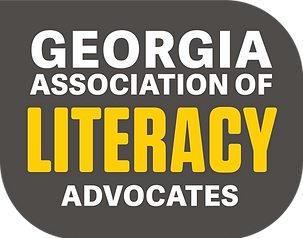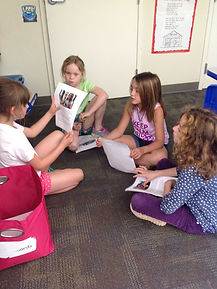
A State Association affiliated with the International Literacy Association
Reading Resources

Teachers use a variety of reading methodologies. We are a resource for research-based reading and literacy methodologies. Our goal is to provide new innovation along with tried and true practices.
Virtual Resources
This is the Fountas and Pinell online resource link. It will take you to the online resources once you have created an account.
Create a teacher account, add your students, and have them use the class code to login. Students can now access TRADE books!!!! You can create assignments that are found in the student mailbox. Teachers can also view reading logs.
Not only does this article explain how and why edmodo and flipgrid are great resources, but Pyle also provides STUDENT ACTIVITIES to get you started.
Professional Development
PBS Teacher Line: Tackle familiar teaching challenges with new ideas and proven methods from master teachers. Through classroom-based assignments, peer discussions, video observations, and carefully curated articles, you’ll analyze and test developmentally appropriate digital & traditional resources that build content knowledge and literacy skills.
REAP is a reading organization in Atlanta that provides FREE Orton-Gillingham Training during the summer. Click here to visit their website and register by FEBRUARY.
Reading Resources

Fountas and Pinnell leveled books website: This frequently updated, subscription-based, on-line list contains 63,439 books submitted by over 300 publishers. Every book is meticulously reviewed and leveled by Irene Fountas and Gay Su Pinnell in conjunction with their team of hand-selected levelers using the F&P Text Level Gradient™.
Free leveled book resource where you can search books by Guided Reading, Lexile, DRA, or grade level.
Curated by a team of ILA members, including literacy experts from ILA's Literacy Research Panel, the Literacy Glossary contains fundamental literacy terms necessary to critical discussions on literacy research and instruction. Think of it as a shared vocabulary for our field—defining our profession, one word at a time.
We recognize that both language and the field of literacy are always evolving. That's why the Literacy Glossary is designed as an interactive tool. We invite you to submit suggestions for additions or revisions by emailing glossary@reading.org. Together, we can continue to build and refine this critical resource.